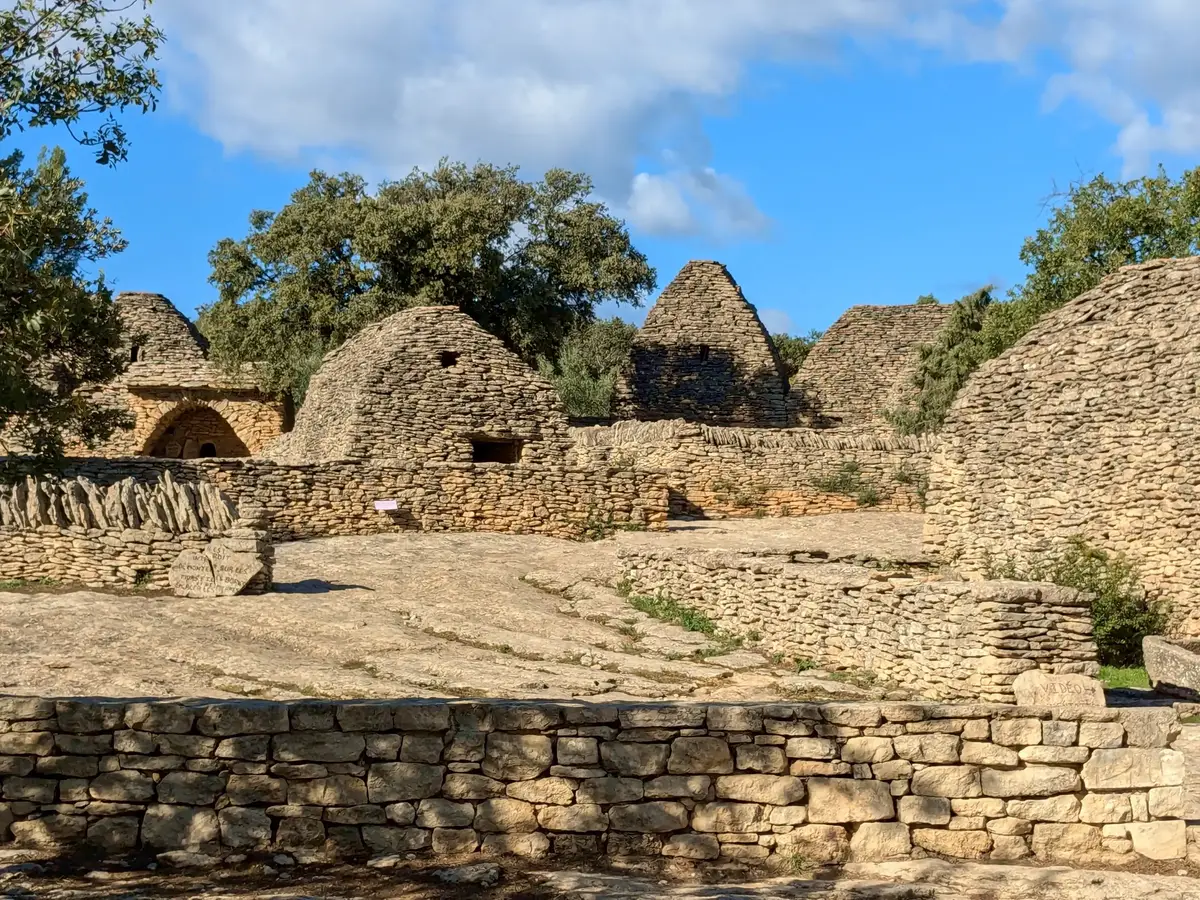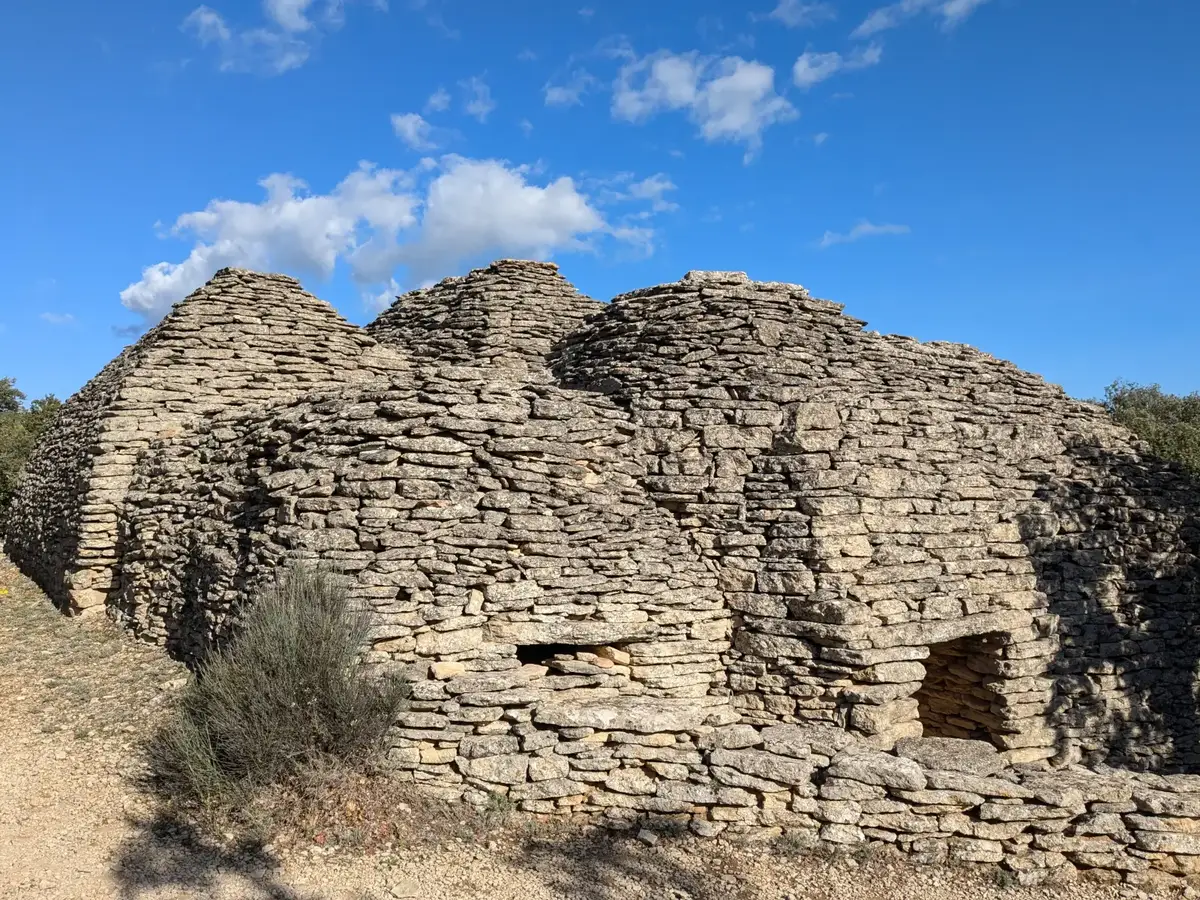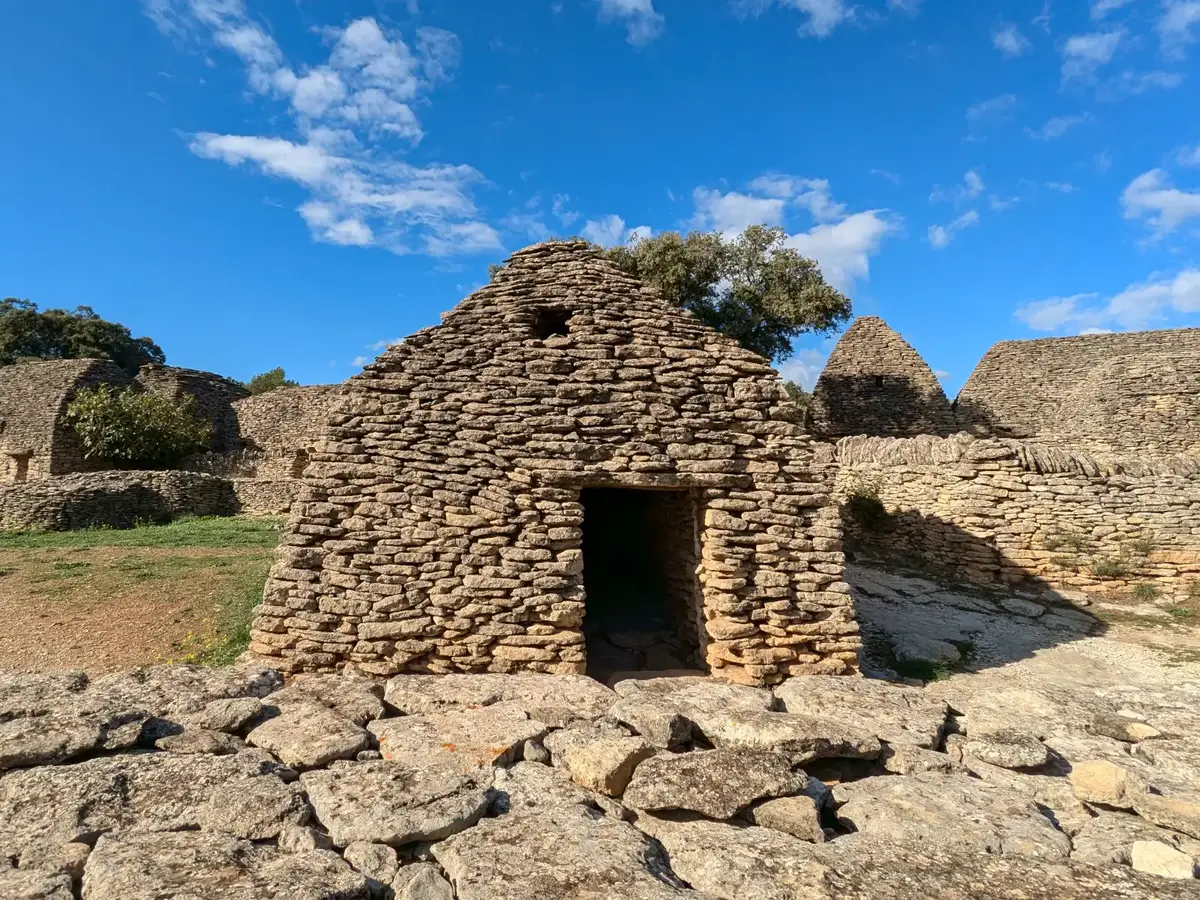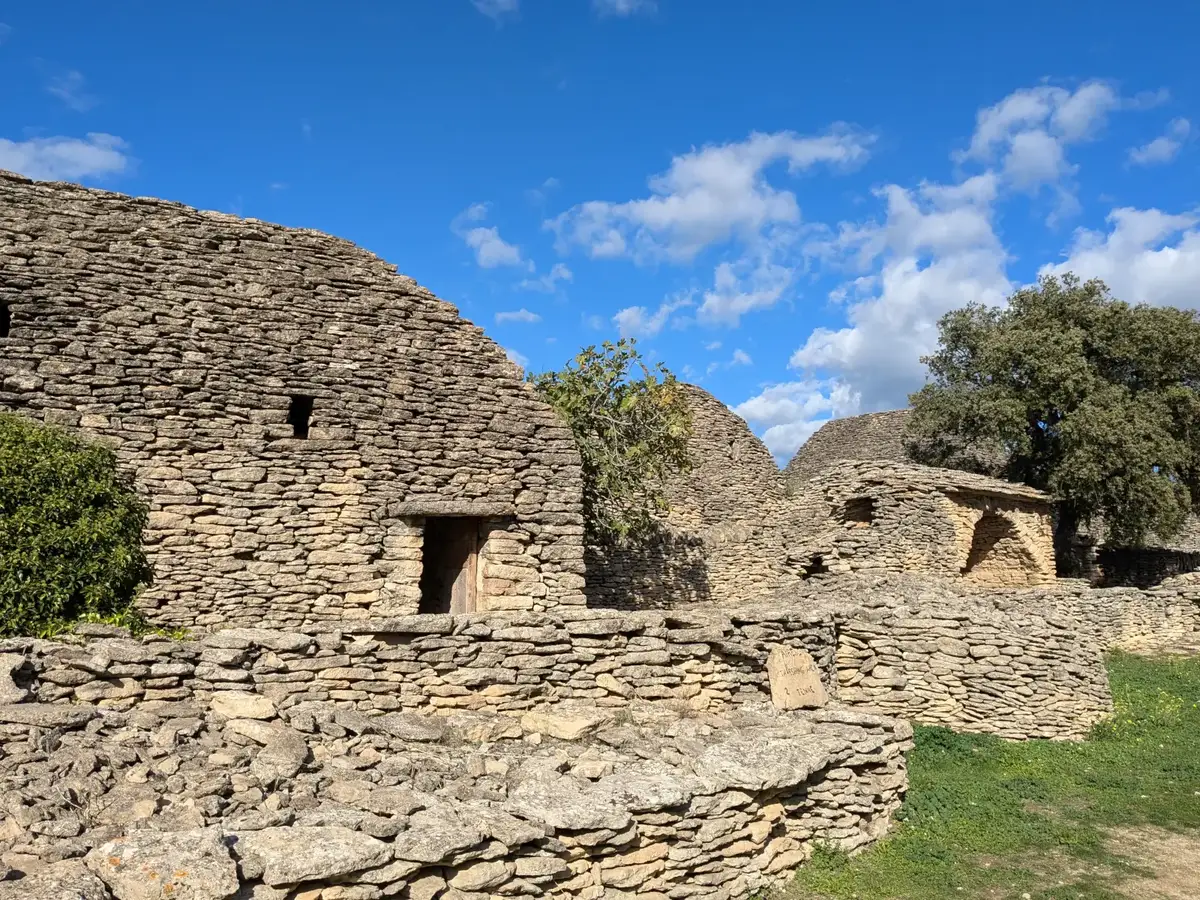Near Gordes, discreetly nestled in the heart of the garrigue on the slopes of the Vaucluse Plateau facing the Luberon, the Village des Bories stands as a silent witness to centuries of rural perseverance.
The Borie, a Traditional Stone Shelter
A "borie" is a dry-stone hut, built without mortar. These constructions, made from limestone quarried in the surrounding hills, are the continuation of an ancestral craft dating back to the Neolithic era. No wooden framework supports their roofs; each borie is topped with a corbelled vault, crowned with heavy slabs that hold the structure together through their own sheer weight.

Scattered throughout the countryside, many bories once served as temporary shelters for farmers, storage rooms for tools, or spaces to store harvests. Today, some of them lie hidden among the oaks and scrubland, as nature has slowly reclaimed these laboriously cleared fields.

The Village des Bories
This hamlet took shape at the end of the 18th century, when modest farmers began to clear the wild scrubland, breaking the stony soil to plant wheat, olive trees, and vines. The stones they unearthed provided an abundant material for building their shelters—simple structures that required no architects or professional masons, but did demand skill, resourcefulness, and patient care in assembling their vaulted roofs.

Abandon and Revival
The village des bories was gradually abandoned from the mid-19th century onward, as rural exodus emptied the countryside. With fields left fallow, nature reclaimed its rights and slowly encroached upon these humble dwellings. Over the decades, the structures fell into disrepair. In 1968, Pierre Viala—poet, writer, and globe-trotter—purchased the land and restored the bories with help from a few local masons from Gordes. Classified as a Historical Monument in 1977, the site became municipal property and opened to visitors in 1984. Today, it welcomes over 100,000 visitors each year.
Find a Guest house near Gordes
Visiting the Village des Bories is an immersion into ancient rural life, where harmony with the surrounding landscape rested on ingenuity and the hard labor of our farming ancestors.



